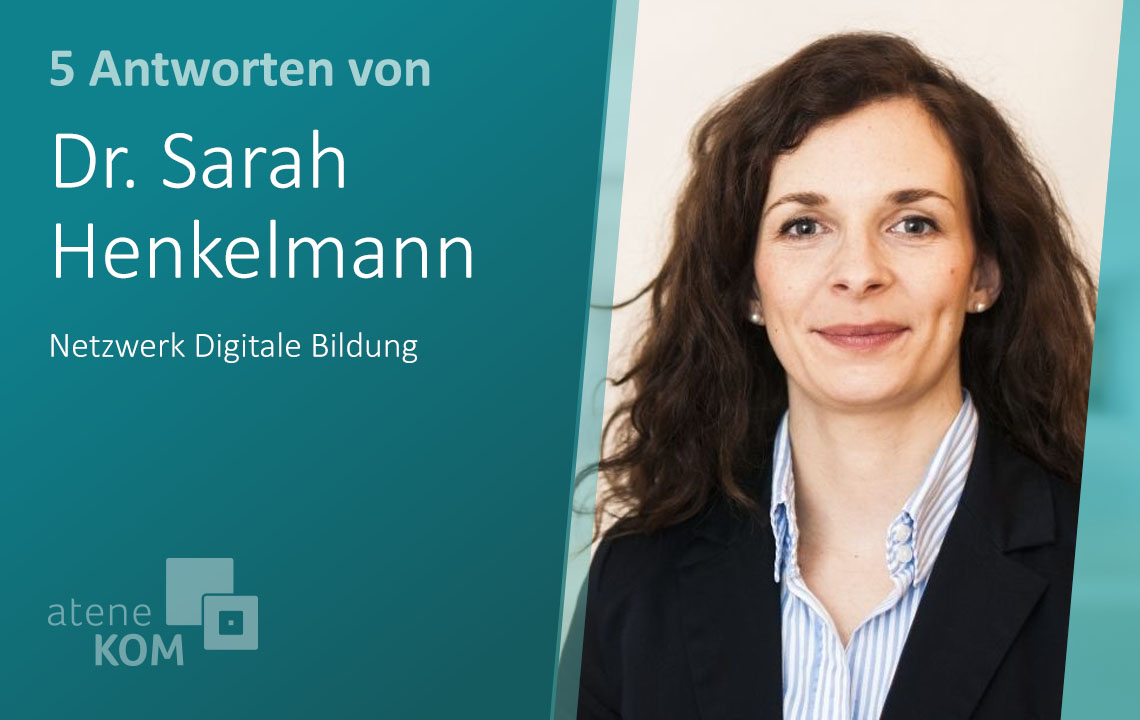Are digital technologies such as artificial intelligence (AI) or smartphone apps replacing traditional skills such as mental arithmetic or writing by hand? Dr. Sarah Henkelmann, spokesperson for the Digital Education Network (NDB)does not believe this and sees the danger in ignoring these technological developments. In an interview with aconium GmbH, she explains which skills will be important in the future and how digital learning media can be optimally integrated into lessons.
aconium: How are digital technologies already being incorporated into the classroom in a meaningful way?
Dr. Sarah Henkelmann: Smartboards are the most widespread in Germany so far – but not yet in all schools. Many schools also have a PC room, laptops or tablets, but only as class sets. This means that not every class is equipped with computers, but that one class set is available for the entire school. I recently visited a school with around 200 pupils. Only 30 tablets were available to the entire institution. We are hoping for the digital pact so that more schools can be equipped with more digital media, such as smartboards and student terminals.
aconium: What other forms can digital education take in schools in the future?
Dr. Henkelmann: I see a big focus on the topic of artificial intelligence. This will present teachers with a major challenge, but AI enables individualized learning and can also motivate pupils. One example: AI can learn which texts the children like to read. For the next reading task, the artificial intelligence then selects a text that particularly interests the pupils from the digital content available. This motivates the children to read more. However, this requires digitally competent teachers. Teacher training is the key to the success of digital education. This begins with the adaptation of teacher training at universities and continues with the lifelong learning of every teacher. Comprehensively trained teachers are given further opportunities to convey content in an understandable way thanks to digital technologies.
aconium: What are the risks of introducing digital technologies in schools?
Dr Henkelmann: The biggest risk is not addressing digitalization in schools at all. If we don’t start integrating digital media into education quickly, we will lose generations of teachers and pupils – who will then not have comprehensive digital skills. If we don’t deal with the use of digital technologies at school, these media will only be used privately – and that’s not enough. Children can then play online games and chat, but they don’t know how to deal with bullying on the internet and that they have a right to their own image, for example. If digital media remain exclusively in the private sphere, they are not taught how to use them in an educational way. Many parents reach their limits here.
aconium: Will digital media replace traditional skills such as writing by hand and mental arithmetic?
Dr. Henkelmann: No, writing with a fountain pen on paper, reading through an entire book and doing mental arithmetic are skills that are still necessary to master life. But digital skills must now complement these skills. Digital media and traditional skills together form the new content of school education. Digitalization is a cross-cutting issue. Digital technologies must therefore be integrated into every subject – from art and foreign languages to the natural sciences. Dealing with digitalization at school then promotes critical thinking and media skills among pupils. After all, it is very important that pupils – and all people in general – are empowered to navigate the digital world safely.
aconium: What would you like to see in the digital education of tomorrow?
Dr. Henkelmann: What I would like to see is teachers, students and political decision-makers becoming more courageous and trying out new things more often. It is certain that digitalization is changing our world and will continue to do so. Now it needs to be systematically introduced into schools in Germany. Teachers need to undergo the appropriate training and be given the space to use digital learning materials in the classroom.
Of course, it is also very important that all schools are technically equipped. Every class must have Wi-Fi access, their own smartboards, tablets and other digital learning media. Teachers and pupils will continue to be the focus in the future, but digital technologies will provide them with new tools.
Further background information on the topics of digital education and artificial intelligence can be found in the dossiers on digitalization from aconium GmbH:

